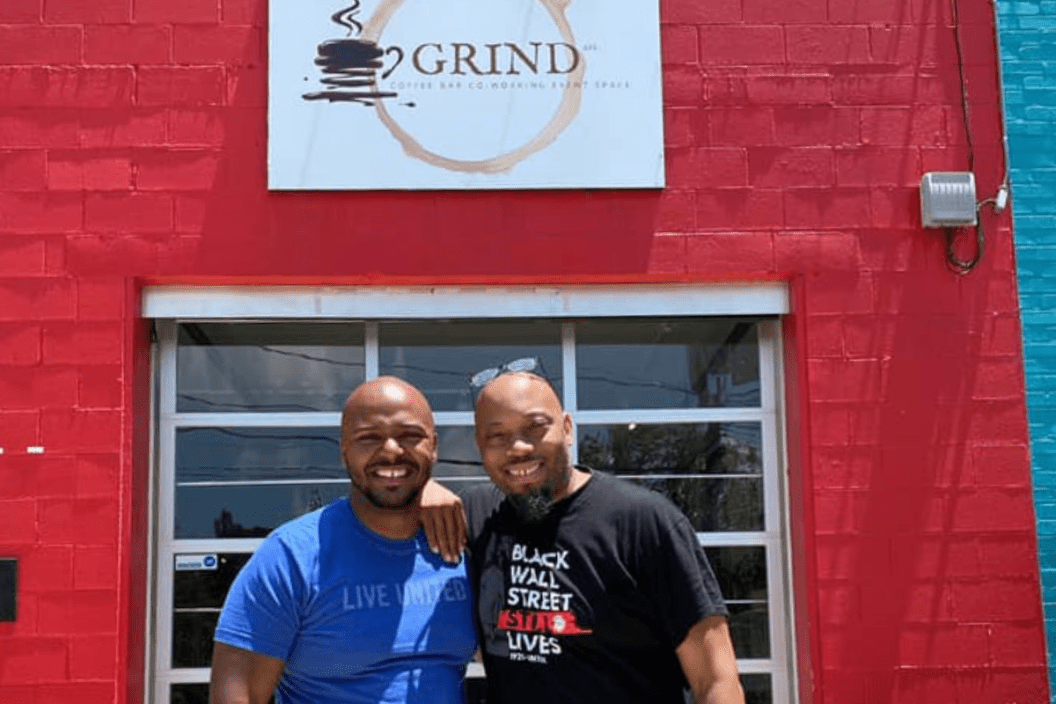J Hackett and his business partner Gene Ettison however could not ignore the glaring inequities regarding race in specialty coffee when the pair joined together to open Grind AVL, the first Black-owned coffee shop in Asheville, North Carolina. Opened in September of 2020 after a summer of civil unrest in the wake of the murder of George Floyd, Hackett thought that it was the best time to tackle the race issue not only in craft coffee, but the inequalities Black business owners face no matter the industry.
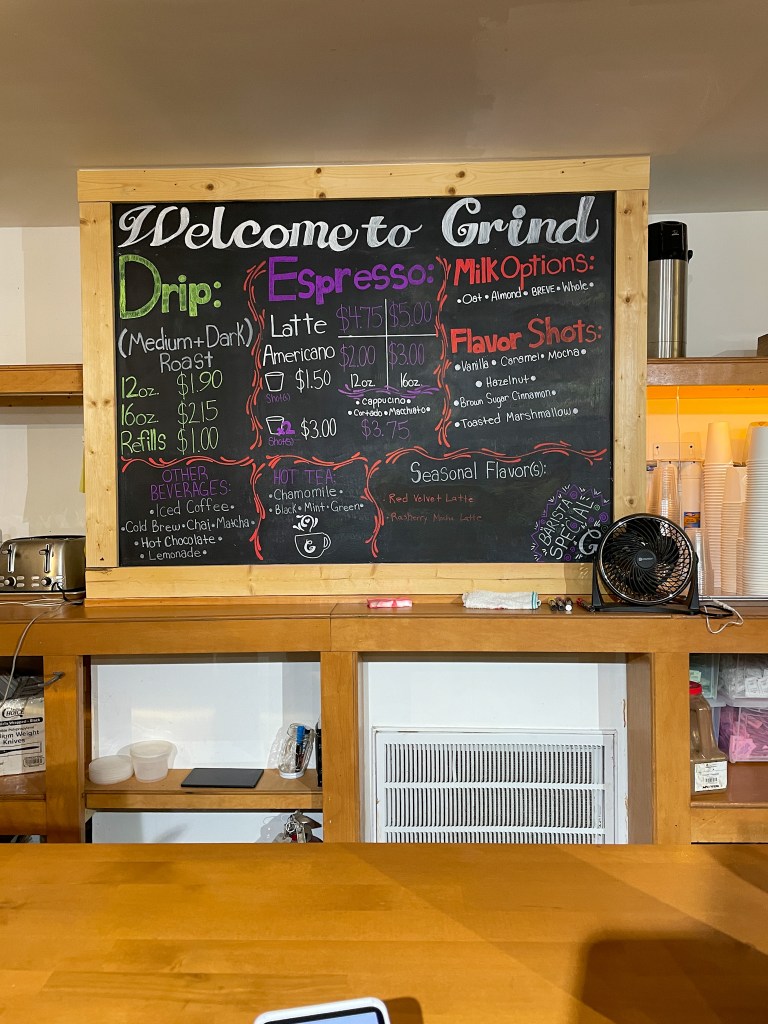
Lyndsay Cordell
"Everything we do has a social justice aspect," Hackett said of his mission with Grind AVL, "Coffee is our unifier to start growing and supporting Black business owners and networks to build Black Wall Street. We just want to participate — that's all."
The Coffee Industry and Equality
An estimated 150 million Americans, or 50% of the population, drink coffee every day, contributing to an industry totaling over $100 billion dollars annually. Of the approximately 36,000 coffee shops serving people every day in the United States, Black-owned coffee shops are severely underrepresented as only a small fraction of these businesses. With a lack of people of color in owner and managerial positions, this sets off a chain reaction where Black baristas are not given the same amount of opportunities to advance into the upper echelons of specialty coffee- an industry already associated with snobbery and elitism.
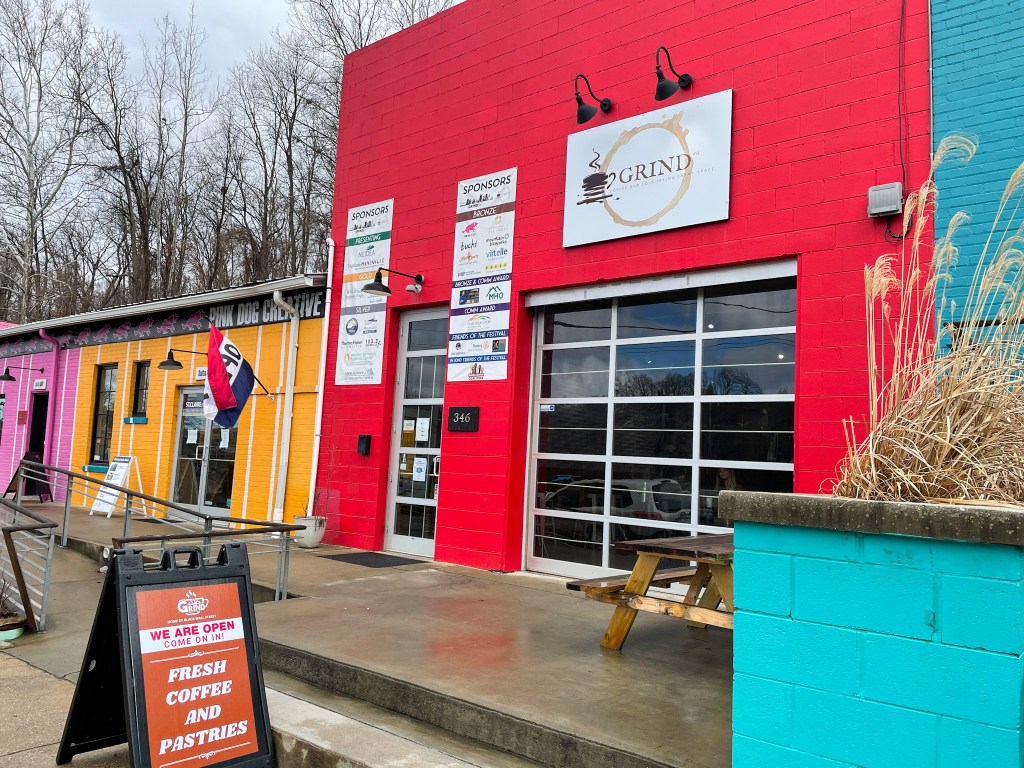
Lyndsay Cordell
Hackett is honored to be able to offer more opportunities for the people in his community to grow within the ever-growing coffee industry, "We wanted a space where people that look like us could come and have a place to welcome them in."
Hackett and Ettison are dedicated to building up their community in Asheville as shown by their strong ties to the area. The pair met while working for the Green Opportunities non-profit promoting economic opportunities to marginalized groups by way of job training, financial assistance, and community organizing.
Hackett served as the executive director of the organization from 2017 to 2019, during which Ettison taught students professional kitchen experience as the executive chef instructor for both Green Opportunities and the Asheville YMCA.
An experienced restauranteur with an army of four food trucks in the Asheville area, Ettison had just started his newest venture Ashe-hole Donuts early in 2020 before the pandemic would wreak havoc on the world at large, but especially on the food service sector.
Ettison's personal investment group was awarded a microloan of $5,000 from the Buncombe county Tourist Development Fund during the first wave of the pandemic to help the new business get back on its feet, but he was looking for more stability in his next steps.
Social Justice and Coffee Beans
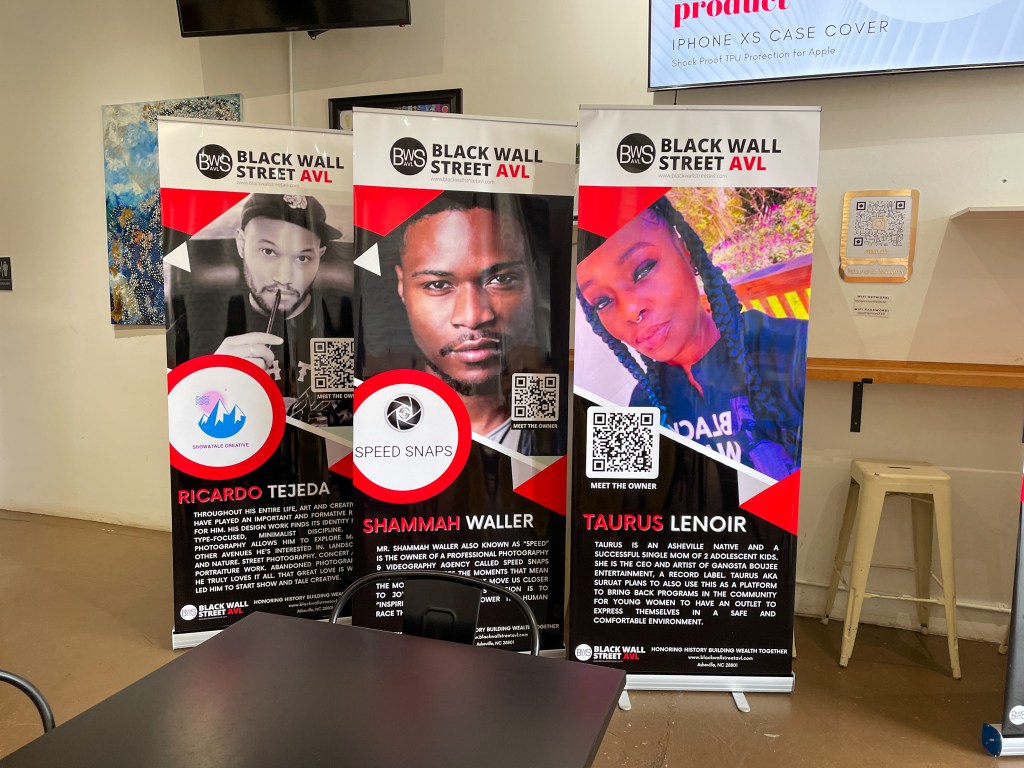
Lyndsay Cordell
As the George Floyd protests began early in the summer of 2020, Ettison was often found out in the crowd supplying snacks and water to the demonstrators. It was out on the ground that summer where Ettison saw a need for a local assembly place that could help further build up their fellow neighbors
Ettison is a native of Asheville's Southside neighborhood, historically home to the majority of the city's Black community as a result of the city's past of urban renewal and redlining. Growing up in Southside and acting as a firsthand witness to the rapid gentrification of the nearby River Arts District, Hackett was able to secure a location for the cafe right on Depot street connecting the two areas.
"Gene has deep roots in the (Southside) community, and we wanted to bring that side of the street closer to the River Arts District," Hackett said. "Grind is in the middle of all that. It's a great place for people to come together."
People come to the cafe for well crafted coffee drinks and locally supplied pastries, but Hackett devised a business model to make the cafe an independent community center by providing resources for fledgling entrepreneurs.
Going beyond the typical free wi-fi for customers to work on, Grind offers assistance for new business owners on all levels. Patrons can use the cafe's printers, copy and fax machines to file paperwork, and use the shop as a co-working space as well as an event center for business affairs. If an independent business does not have a commercial address of their own to claim, they can use Grind's mailing address and rent private lockboxes to legitimize their brand. Grind also offers monthly memberships that give access to more in-depth lessons on entrepreneurship and business literacy.
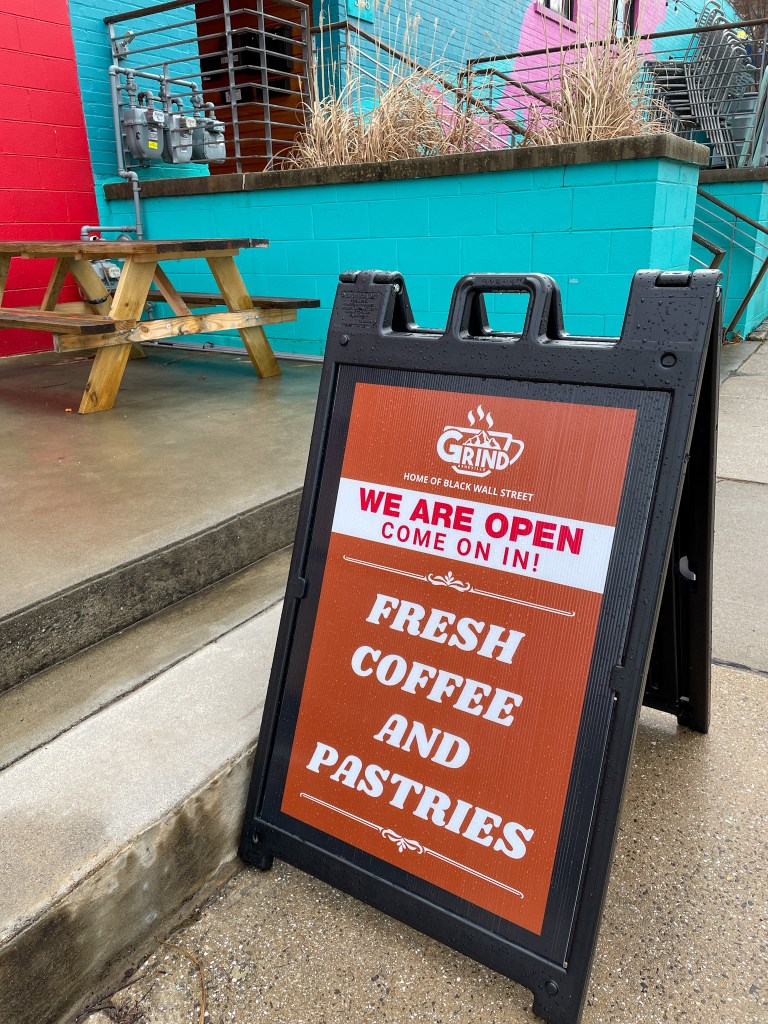
Lyndsay Cordell
"What we wanted was a coffee, co-working, and event space to help Black and brown businesses grow. They are missing out on key information they need to become successful business owners."
Hackett emphasizes the need for more diversity in business ownership as a whole, but he and Ettison acknowledged the particular inequality of people of color in specialty coffee.
"For one, being an African American trying to enter into the coffee space is difficult," Ettison said. "Ultimately it doesn't appeal to the African American community."
Hackett however thinks that the communal nature of sharing coffee with others is central to offering more economic mobility to the community. "Coffee is our unifier to start growing and supporting Black business owners and networks to build Black Wall Street."
Grind was just the first business established in Hackett's vision for a Black Wall Street in Asheville, where Black business owners would be able to congregate and work with other entrepreneurs with similar backgrounds. Black Wall Street AVL is Hackett's continued project with Ettison to build new businesses within the River Arts District and Southside neighborhoods.
The organization was able to distribute $50,000 among 20 new businesses in 2021 with Grind AVL acting as the epicenter for all the new growth. By offering a place for new businesses to germinate and grow the local economy, Grind AVL shows how coffee can re-energize a community in more ways than one.
READ MORE: 6 Coffee Creamer Substitutes You Should Consider Putting in Your Mug
